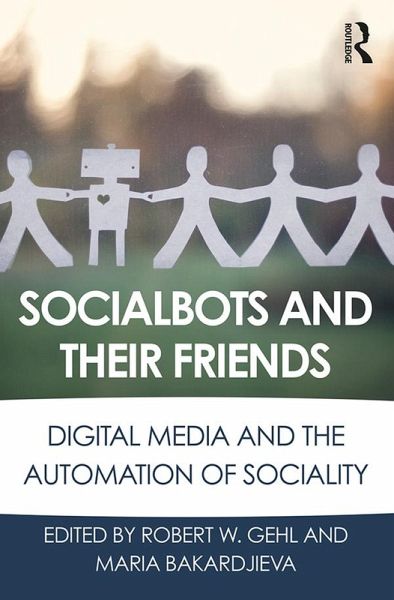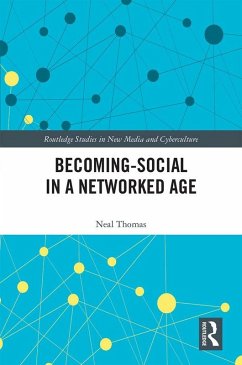
Socialbots and Their Friends (eBook, PDF)
Digital Media and the Automation of Sociality
Redaktion: Gehl, Robert W.; Bakardjieva, Maria
Versandkostenfrei!
Sofort per Download lieferbar
45,95 €
inkl. MwSt.
Weitere Ausgaben:

PAYBACK Punkte
23 °P sammeln!
Many users of the Internet are aware of bots: automated programs that work behind the scenes to come up with search suggestions, check the weather, filter emails, or clean up Wikipedia entries. More recently, a new software robot has been making its presence felt in social media sites such as Facebook and Twitter - the socialbot. However, unlike other bots, socialbots are built to appear human. While a weatherbot will tell you if it's sunny and a spambot will incessantly peddle Viagra, socialbots will ask you questions, have conversations, like your posts, retweet you, and become your friend. ...
Many users of the Internet are aware of bots: automated programs that work behind the scenes to come up with search suggestions, check the weather, filter emails, or clean up Wikipedia entries. More recently, a new software robot has been making its presence felt in social media sites such as Facebook and Twitter - the socialbot. However, unlike other bots, socialbots are built to appear human. While a weatherbot will tell you if it's sunny and a spambot will incessantly peddle Viagra, socialbots will ask you questions, have conversations, like your posts, retweet you, and become your friend. All the while, if they're well-programmed, you won't know that you're tweeting and friending with a robot.
Who benefits from the use of software robots? Who loses? Does a bot deserve rights? Who pulls the strings of these bots? Who has the right to know what about them? What does it mean to be intelligent? What does it mean to be a friend? Socialbots and Their Friends: Digital Media and the Automation of Sociality is one of the first academic collections to critically consider the socialbot and tackle these pressing questions.
Who benefits from the use of software robots? Who loses? Does a bot deserve rights? Who pulls the strings of these bots? Who has the right to know what about them? What does it mean to be intelligent? What does it mean to be a friend? Socialbots and Their Friends: Digital Media and the Automation of Sociality is one of the first academic collections to critically consider the socialbot and tackle these pressing questions.
Dieser Download kann aus rechtlichen Gründen nur mit Rechnungsadresse in A, B, BG, CY, CZ, D, DK, EW, E, FIN, F, GR, HR, H, IRL, I, LT, L, LR, M, NL, PL, P, R, S, SLO, SK ausgeliefert werden.













